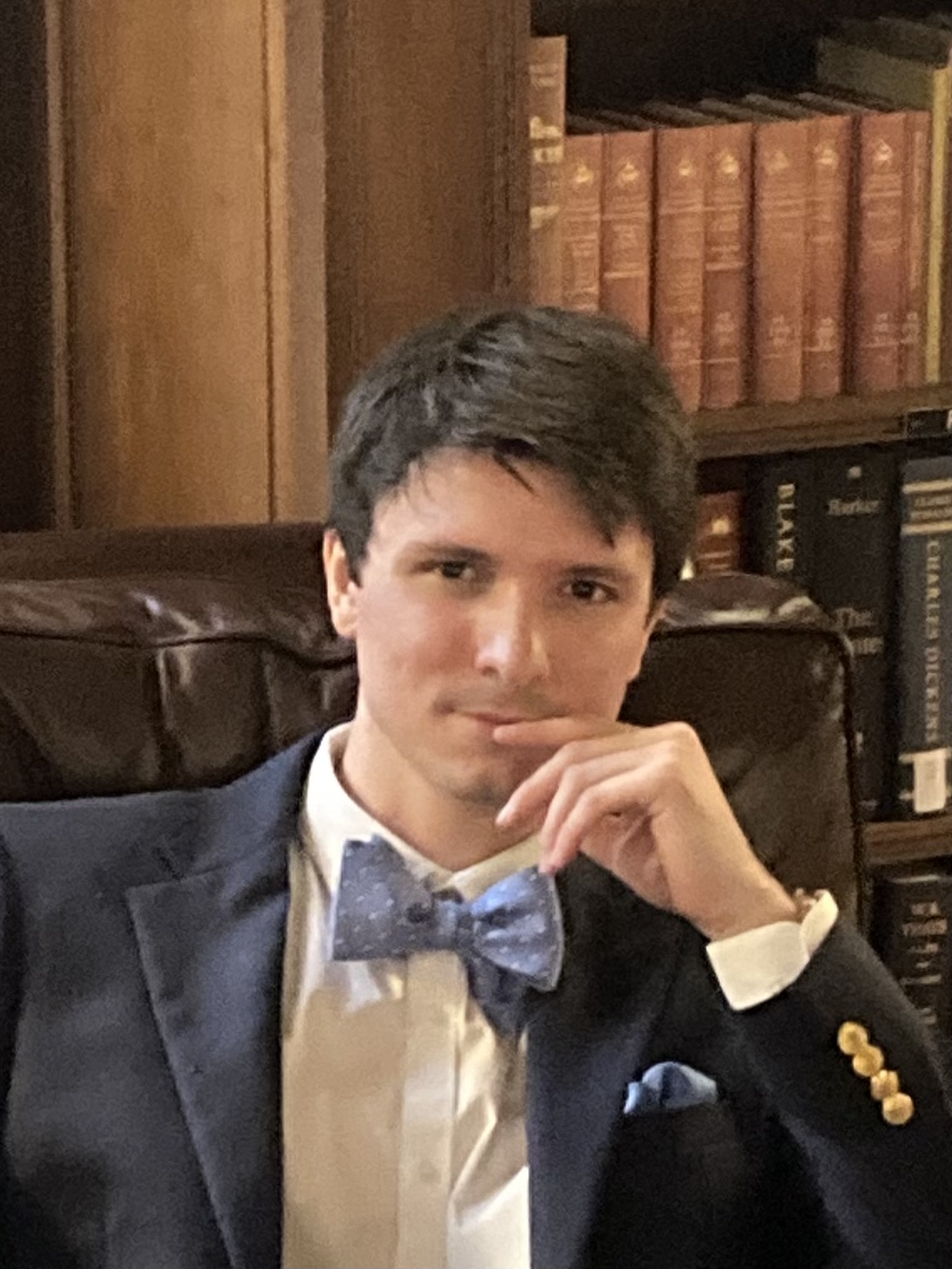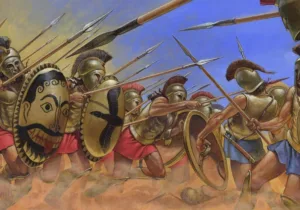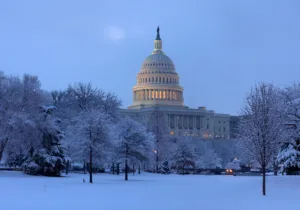Depending on who you ask, Henry Kissinger is either the genius diplomat who won the Cold War or a war criminal long overdue for indictment by the Hague. Given Kissinger’s place in history, it’s worth reviewing how his early ideas and interests foreshadowed the man he would eventually become. Pursuant to this end, there exists perhaps no better window into the mind of young Kissinger than his undergraduate honors thesis at Harvard, a text which warrants far more attention than it has received.
Kissinger’s primary area of focus is the tension between the lived individual experience of free will and the determinism of the historical process:
“Is history the self-realization of the spirit of freedom, as Hegel held? Or does it represent the growth and decline of organic cultures, their essence a mystery, their moving force longing, and their manifestation power, as Spengler argued? Is there a deeper purpose in all this emergence and decay of civilizations, a realization of salvation by faith, as Toynbee implies? Does history amount to no more than eternal recurrence, the stage for the man who surpasses himself of Nietzsche, or does it reveal the drama of a divine plan, gradually unfolding and culmination in universal peace, as Kant asserts?”
Oswald Spengler, whose ideas on the cyclical growth and decay of civilizations were hugely influential following WWI, is the diplomat’s first interlocutor. Kissinger then critiques Arnold Toynbee, one of the most influential historians at that time. Finally, he closes with Kant, as his ideas on the gradual emergence of a divine plan though reason served as the most comprehensive metaphysical view of history in not only German, but Western thought.
For each section, Kissinger posits that the only way to evaluate these thinkers is to examine their metaphysical presuppositions to determine their overarching understanding of Man’s relation to history. It is only in the exegesis of Spengler and Toynbee, Kissinger argues, that a fuller view of Kant’s thought can provide a solution.
Kissinger clearly admires Spengler most, not only because he spends the most time on him, but also because Spengler’s evaluation is the most robust. Heavily influenced by Hegel, Spengler saw civilizations as autonomous organisms actualizing their immanence through their depth-experience. History is revealed through the manifestation of an inexorable destiny, its completion the consequence of the unconscious participation in its process of becoming. Each culture goes through its own process of youth, maturity and decline in both political and artistic history. For Kissinger, Spengler was a visionary, if a misguided one:
“Spengler’s vision encompassed an approach to history which-whatever our opinion of his conclusions, transcended the mere causal analysis of data and the shallow dogmatism of many progress theories… the conviction remains that Spengler has found poetry in life which rises above the barren systematization of its manifestations.”
Spengler was, for Kissinger, a revolutionary who provided a new way of viewing history. Instead of history as the product of advancements in technology, philosophy, institutions or culture, they are accidental manifestations of the larger, organic process of a civilization’s life-cycle. He thus flipped the philosophy of history on its head. Yet, however intelligent Spengler may be, he could never satisfy Kissinger because the all-encompassing destiny of a civilization left no room for individual free will.
Toynbee, then, took Spengler’s process and attempted to bring a more evidenced based approach it to complete it within a Christian eschatology. Toynbee saw himself as a British Empiricist, heavily influenced by the methodology of Hume and the logical positivists. He saw historical development not as the organic process of the lifecycle of a civilization, but as the successful adaptation to a problem facing a civilization, known as Challenge-and-Response. He went into great detail explaining the interactions of the relevant actors and how civilizational growth and decline is accounted for in a quasi-evolutionary process. Their ultimate failure constituting the realization of the final stage of integration in Christ’s return. For Toynbee:
“Civilizations were not organic beings whose destiny determines their history, but merely the fields of activity…[they] do not break down because of an inevitable fatality, but commit suicide…then out of the collapse of material hopes arises the vision of the ultimate meaning of human suffering, the real embodiment of historical existence the Kingdom of God, with Christ as King.”
Yet Kissinger ultimately finds Toynbee to be even less satisfying than Spengler because Toynbee’s presuppositions of a Christian end-to-history ultimately undercuts his empirical approach to its unfolding. The biological, evolutionary-empirical view is irreconcilable with the theological one.
Kant’s thought, finally, offers a solution to Kissinger’s underlying dilemma. Kant tried to combine and transcend the two predominant schools of thought in his time. Rationalism, personified by Spinoza, held that all action was merely necessity unfolding, and Empiricism, personified by Hume’s metaphysical skepticism, which rendered ultimate reality as unknowable. Spinoza’s negation of free will in history mirrored that of Spengler; whereas Toynbee tried to transcend Hume by his Christianity but ultimately failed. Thus, Kant’s reconciliation between Rationalism and Empiricism mirrored the antinomy between Spangler and Toynbee.
Kant achieved this by making a distinction between phenomenal (things apprehended by pure reason) and noumenal (things in themselves and objects of speculative reason) reality. Causal analysis became relegated to phenomenal reality, whereas Man’s experience of morality was opened in the field of the noumenal. Kant thus limited reason and made way for belief. The antinomy between necessity and freedom, between historically understood determinism and the experience of free will, was reconciled in the recognition of the limitations of pure reason and the expansion of the noumenal. Thus, the determinism of the historical process and Man’s experience of freedom were not incongruous but merely two sides of the same coin, one understood by the phenomenal and one by the noumenal.
Kant would go on to apply the moral law understood in noumenal reality to international political considerations in his essay, On Perpetual Peace (1795). He argued that once the categorical imperative is realized, its moral sanction extends to the political realm. Thus, since republican constitutions institutionalize the categorical imperative (“Act only according to that maxim whereby you can at the same time will that it should become a universal law”) and since man can never be treated as a mere means to ends, peace sought through the international cooperation of federated republics is Man’s highest task and noblest purpose. Kissinger respects how Kant’s political philosophy flows from his metaphysical and ethical propositions, but ultimately rejects it on methodological grounds, mirroring Kissinger’s own rejection of Wilsonian Idealism in his own time.
In reviewing the breadth of Kissinger’s thesis, I’m reminded of a story from Kissinger’s visit to China. When he asked Chinese politician Zhou Enlai his thoughts on the French Revolution, Enlai replied “It’s too soon to tell.” Kissinger came to believe the Chinese officials were geniuses who thought in terms of centuries. In fact, in his book On China, Kissinger spends the better part of the opening chapter explaining the Chinese board game of wei qi and how it is much more complicated than Chess, relaying how it represents the CCP thoughts on grand strategy and its more all-encompassing nature than Western grand strategy.
Sadly, the story is the product of a miscommunication by the translator. Enlai thought Kissinger was referring to the French student protests of 1968. Nevertheless, it says far more about Kissinger than the CCP. Kissinger thinks in terms of the grandest possible scale. His willingness to attribute such breadth to the Chinese Premier is a reflection of the magnitude of his own thoughts. The precociousness of Kissinger’s honors thesis itself is a testament to his ambition. The topic is grand, and Kissinger covers large swaths of Western thought within the span of just a few pages. In wrestling with such an enigmatic subject, he demonstrates his willingness to tackle some of the most perplexing topics of Western philosophy head on. He is a first-rate mind, whatever his ultimate place in history.







 Sponsor a student for Christianity & National Security 2024
Sponsor a student for Christianity & National Security 2024